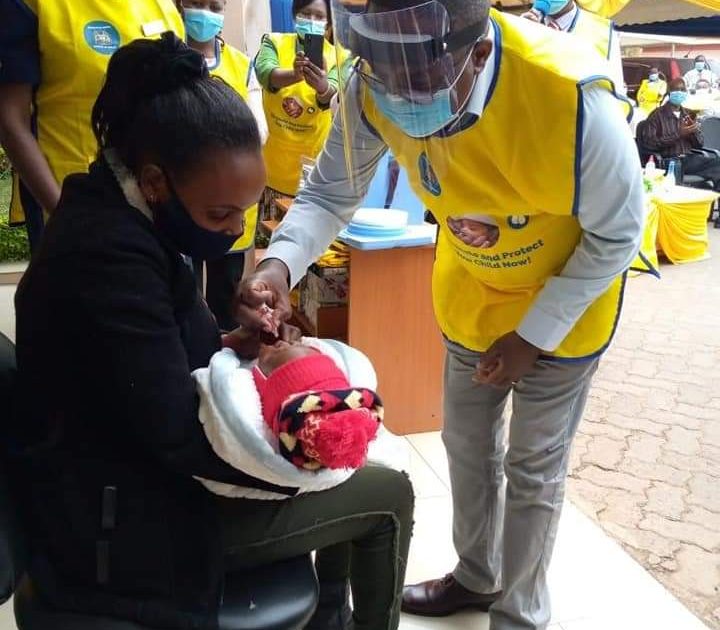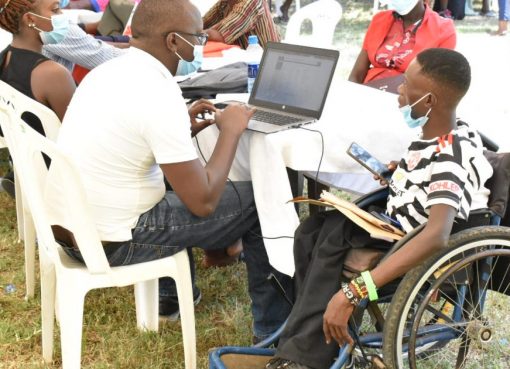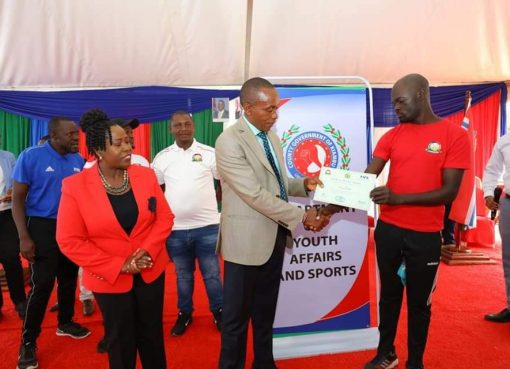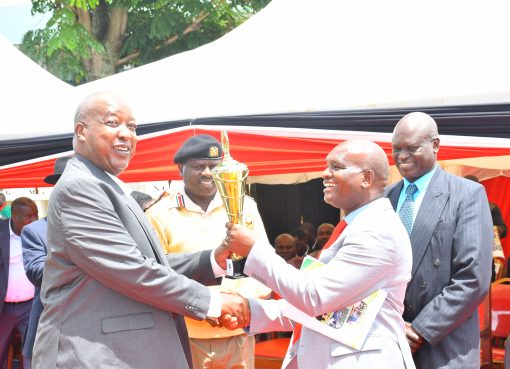Machakos County government through the Ministry of Health and emergency services has vaccinated 239,367 children under the age of 5 years against polio during the just concluded countrywide polio campaign.
Speaking in Machakos town, the County Executive for Health, Dr. Ancent Kituku Nzioka noted that the county, which had targeted to vaccinate 230,565 against the deadly disease managed to surpass its target by 3.6 per cent. “We managed to immunize 239,367 children which translates to 103.6 per cent of the target,” said Nzioka.
“We closed our meeting for Round 2 Polio supplemental immunization activity between the Machakos County Ministry of Health, World Health Organization and United Nations Office of Project services among other county health representatives,” added Nzioka.
He said that this was made possible by 521 mobile teams, 45 fixed sites that consisted of vaccinators and volunteers not to forget a team of 108 supervisors. “I take this opportunity to thank our Healthcare workers and development partners for executing the activity very well,” he added.
The second phase of the Polio supplemental immunization activity, which kicked off on 17th of this month was being conducted across 13 high-risk counties including Machakos.
Speaking during the launch of the campaign, Nzioka pointed out that the activity was conducted in designated areas within the county’s nine sub-counties.
He urged those living in gated communities especially in Syokimau area in Mavoko sub-county to allow the polio teams to gain access so that more children can be vaccinated within the stipulated time.
The Health county executive pointed that those who will be conducting the immunizations are distinctly identifiable through their mode of dressing and the Ministry of Health permits work tags.
Machakos has nine sub-counties namely Machakos town, Mavoko, Kathiani, Kagundo, Matungulu, Kalama, Yatta, Mwala and Masinga.
The Campaign targeted about 3.4 million children in 13 high-risk counties including Garissa, Isiolo, Kajiado, Kiambu, Kilifi, Kitui, Lamu, Machakos, Mandera, Mombasa, Nairobi, Tana River and Wajir.
The Ministry of Health had directed that the exercise be conducted through house-to-house visits by vaccination teams, in an exercise that was conducted in strict conformity with Covid-19 health protocols.
A total of 2.6 million children were vaccinated against polio during the first phase of the campaign that was conducted between 22nd to 26th of May, 2021.
According to the World Health Organization (WHO), Poliomyelitis (polio) is a highly infectious viral disease that largely affects children under 5 years of age.
The virus is transmitted by person-to-person spread mainly through the fecal-oral route or, less frequently, by a common vehicle (e.g. contaminated water or food) and multiplies in the intestine, from where it can invade the nervous system and cause paralysis.
In 1988, the World Health Assembly adopted a resolution for the worldwide eradication of polio, marking the launch of the Global Polio Eradication Initiative, spearheaded by national governments, WHO, Rotary International, the US Centers for Disease Control and Prevention (CDC), UNICEF, and later joined by the Bill & Melinda Gates Foundation and Gavi, the Vaccine Alliance.
According to WHO, wild poliovirus cases have decreased by over 99 per cent since 1988, from an estimated 350 000 cases in more than 125 endemic countries to 175 reported cases in 2019.
Of the three strains of wild poliovirus (type 1, type 2 and type 3), wild poliovirus type 2 was eradicated in 1999 and no case of wild poliovirus type 3 has been found since the last reported case in Nigeria in November 2012.
The international health body states that both strains have officially been certified as globally eradicated. As of 2020, wild poliovirus type 1 affects two countries: Pakistan and Afghanistan.
WHO further states that the strategies for polio eradication work when they are fully implemented. This is clearly demonstrated by India’s success in stopping polio in January 2011, in arguably the most technically challenging place, and polio-free certification of the entire WHO Southeast Asia Region in March 2014.
By Rachael Kilonzo





